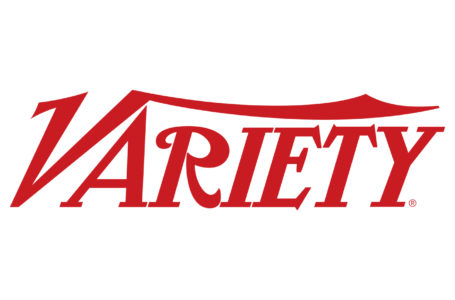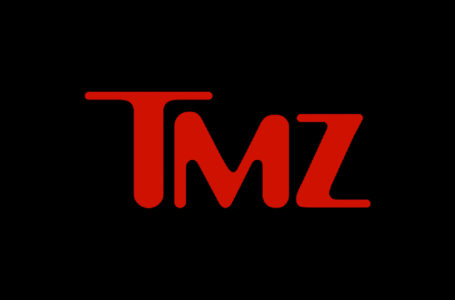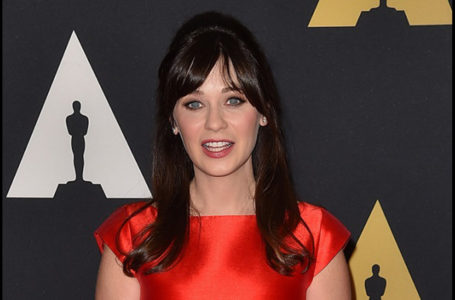UPDATED AT 3:45 PM WITH MORE ANALYSIS…
EXCLUSIVE… BREAKING 1:51 PM… This is what’s known as an interpleading. Batman trilogy director Christopher Nolan wants to pay his talent agency commissions — but doesn’t know which tenpercentery to pay. That’s because he’s caught in the middle as CAA and WME fight over which agency is entitled to his fees. Read the lawsuit here. It’s the inevitable fallout from Nolan’s longtime agent, Dan Aloni, being fired from CAA and jumping to WME. My sources estimate the money at stake from Nolan’s deals between October 2005 and February 2012 (and possibly well into the future on these movies) is 10% commission on a minimum of $250 million. And include Nolan’s involvement with Batman Begins, The Dark Knight, The Dark Knight Rises as well as Inception and Man of Steel and its hoped-for sequels, and perhaps even projects not yet made public.
And more lawsuits may be in the offing because Aloni since exiting CAA has brought over all his big clients to WME including Jim Carrey, David Dobkin, Mike Myers, Jay Roach, David Goyer, Tom Shadyac, Michel Gondry, Raja Gosnell, Mandeville Films, Jonathan Mostow, Dean Parisot, Neal Moritz, Andy Fleming, David and Ian Purchase, John Crowley and John Carney. And more legal battles could result from agent Warren Zavala leaving CAA to go to WME in June and bringing wth him Joseph Gordon-Levitt, Paul Dano, The Big Bang Theory‘s Johnny Galecki, Amber Heard and Mary Elizabeth Winstead.
The Century City law firm of Freedman & Taitelman filed the lawsuit today on behalf of Christopher Nolan, his wife Emma Thomas Nolan, and their production company Syncopy. The complaint in this interpleader action makes clear that the plaintiffs feel caught in the middle, don’t like it, and more importantly don’t want to get sued by either CAA or WME because of it. Instead they are pleading with the court to require CAA and WME to work this out by themselves.
Agency fights over commissions are commonplace, but it’s rare to have clients sue the agencies to leave them out of it. One reason is that, as a talent agency client, Nolan only can be required to pay a maximum of 10% commission on any of his deals to any tenpercentery or combination thereof. So in essence he’s inherently indemnified from double jeopardy and can sit back and let CAA and WME fight this out without any concerns. But also the Directors Guild normally arbitrates such disputes for a director like Nolan.
There are few precedents for an agency firing a top agent. I understand that in Aloni’s case CAA never concluded a severance package acceptable to the tenpercenter. So that’s a factor in play. Generally speaking, the commissionable agency is the one that secured and closed each deal. But if there’s some extraordinary servicing that goes on, such as a deal made in principal but without funding in place, then the successor agency could argue that it’s delivering critical services. Then there’s the issue of who is entitled to Nolan’s future projects, or sequels and prequels on the old ones.
Needless to say, CAA’s and WME’s competitors are enjoying this fight. “By firing Aloni, CAA had to know it was kissing goodbye some meaningful dollars, and that this guy was going to have a meaningful future,” a rival tells me. “I want that deposition of [Richard] Lovett on videotape so I can send it out on YouTube.”
The Plaintiffs seek to pay their talent agency commissions to the rightful talent agency or agencies. Demand has been made on the Plaintiffs by their former and current talent agencies to pay commissions on sums arising out of the same project(s). Defendant Creative Artists Agency claims it is entitled to receive commissions on sums received by Plaintiffs in connection with all engagements or projects entered into during the time CAA was Plaintiffs’ talent agency. Defendant William Morris Endeavor Entertainment asserts a right to a portion of the same commissions on the grounds that it is Plaintiffs’ current talent agency of record and that it is presently servicing the project(s) in connection with which Plaintiffs are being paid sums and for which commissions are presently being generated.
The Plaintiffs take no position with respect to which of the defendants are entitled to their agency commissions and simply wish to discharge their obligations through this Complaint In Interpleader.
From approximately October 2005 through February 2012, CAA was Nolan’s talent agency. In early March, WME became his talent agency of record and is currently his talent agency after Aloni was fired by CAA and jumped to WME. Both agencies had to have known that this would cause chaos with Nolan’s commissions. It always does. The two tenpercenteries can make good arguments why each is entitled to Nolan’s fees.
Plaintiffs are in possession of money which they have received from work performed on certain motion picture projects and for which they acknowledge should be paid out as agency commissions to WME and/or CAA. Defendants, and each of them, have made conflicting demands upon Plaintiffs to the Commissions as follows:
a. CAA asserts that it has a right to receive Commissions on sums received by the Plaintiffs in connection with all engagements or projects entered into during the time CAA was Plaintiffs’ talent agency.
b. WME asserts a right to a portion of the Commissions on the grounds that it is Plaintiffs’ current talent agency of record and that it is presently servicing the projects in connection with which Plaintiffs are being paid sums and for which the Commissions are presently being generated.
Plaintiffs cannot resolve the conflicting demands made upon them by WME and CAA without potentially exposing themselves to multiple liabilities or litigation or both. Plaintiffs are unable to determine to whom the Commissions should rightfully be delivered. Plaintiffs claim no interest in the Commissions. They are merely stakeholders of these Commissions and are ready and willing to deliver the Commissions to the party who is legally entitled to receive them.
Plaintiffs should not be compelled to become involved in the actual or potential disputes and contentions of Defendants with respect to the Commissions, and Defendants should be ordered to litigate and otherwise settle such disputes among themselves without involving
Plaintiffs.Thus, Plaintiffs bring this action to have the matter legally determined Plaintiffs have incurred costs and reasonable attorney’s fees in bringing this interpleader action and may continue to incur fees and costs until this matter is adjudicated with finality as to Plaintiffs’ obligations.
What Nolan et al are asking for is as follows:
That the Defendants and each of them be ordered to interplead and litigate their claims to the subject matter of this interpleader, and be restrained from initiating any other actions against Plaintiffs relating to the subject matter of this interpleader; That Plaintiffs be discharged from liability to the Defendants with respect to the interpleaded Commissions deposited with this court; That the Plaintiffs be awarded their actual court costs and reasonable attorney’s fees that the Plaintiffs have incurred in relation to this interpleader action to be paid from the date funds are deposited with the court.





